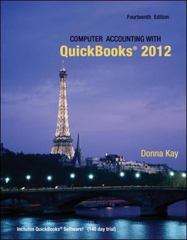Question
Case Study: Airbnb in Hobart Denise, an Australian resident, is a self-funded retiree from Sydney, who is planning, this year, on moving to Hobart and
Case Study: Airbnb in Hobart
Denise, an Australian resident, is a self-funded retiree from Sydney, who is planning, this year, on moving to Hobart and purchasing a home. This will be the first home she had ever purchased. She has been looking at three-bedroom, two-bathroom properties with parking for three cars, and a reasonably sized outdoor entertaining area. Her plan is to live in the property, while letting two of the bedrooms as Airbnb, for up to 4 guests. Currently, she has $700,000 in her account with the Commonwealth Bank. As she has an income stream from her investments of $4,000 per fortnight, she is prepared to put up to $450,000 of her savings (but is somewhat flexible with this figure) towards the purchase of the property, making up the short-fall with a bank-loan. The Commonwealth Bank has already pre-approved her for a home loan of up to $350,000. However, of course, she would like to take on the lowest debt possible, while making the highest possible profit from the Airbnb.
Denise has now approached you, a highly capable Hobart team of management and cost accountants, with an excellent professional reputation, and extensive knowledge of local council regulations. She asks you to research the financial viability of the proposed project and has provided you with two options:
OPTION A: An almost brand-new, high-end property, of 260m2, in Sandy Bay, on the market for $750,000, including all furnishings and fittings. It meets all of Denise's criteria, has magnificent views over the Casino, and is in close proximity to the central business district (CBD), while having the added advantage of the two guest bedrooms with ensuite bathrooms, a second lounge and kitchenette being located on the ground floor, thereby affording privacy to both herself and her guests. It also has 15 solar panels,[1] providing 4,950 Wof power, uses energy-efficient LED lights, providing a $380 saving on the normal quarterly electricity bill, of $900,and has a 3000 litre rain-water tank, for flushing toilets and watering the garden. While the outdoor area is big enough for entertaining guests, there is no room for a vegetable garden. This property is already operating as an Airbnb, bringing in $250, per room, per night, with a pre-Covid occupancy rate of 99%. The annual council rates are $2,500, and insurance to cover the property, including lability insurance for the Airbnb guests, and all fixtures and fittings is $1,800 per annum.
OPTION B: A spacious, 200 m2, older property in Berriedale, priced at $450,000, with a lovely outlook over the river, and in close proximity tothe popular MONA (art gallery). It meets all of Denise's basic criteria, although all three bedrooms are located on the one level, and the property is in need of a total renovation, to make it fit for purpose. Denise has received an estimate of approximately $150,000 for the renovation work, with an additional $40,000, approximately, for painting, decorating, furnishing, and landscaping, to create dedicated outdoor entertainment area. This property has not been used as an Airbnb, but similar Airbnbs in the area earn up to $200, per room, per night. The annual council rates are $1,200, and the insurance to cover the property, including liability insurance for the Airbnb guests, and all fixtures and fittings, is $1,000 per annum. The quarterly power bill is currently $450. Denise wants to change to energy-efficient LED lighting, at a cost of $80. This should save her up to $180 on her quarterly power bill. She has also obtained a quote for $6000, for installing solar panels (4,950 W), which will lower her quarterly bill by a further $300, and another for $950, for a 3000 litre rain-water tank for the toilets and watering the garden. The property has a large back garden which is already set up for raising chickens and growing vegetables. There are also a dozen different fruit trees. Denise estimates that for an annual outlay of $200 for feed and fertilisers, she could be self-sufficient in eggs, fruit and vegetables.
Calculate the investment Payback period, NPV, and IRR
Step by Step Solution
There are 3 Steps involved in it
Step: 1

Get Instant Access to Expert-Tailored Solutions
See step-by-step solutions with expert insights and AI powered tools for academic success
Step: 2

Step: 3

Ace Your Homework with AI
Get the answers you need in no time with our AI-driven, step-by-step assistance
Get Started


